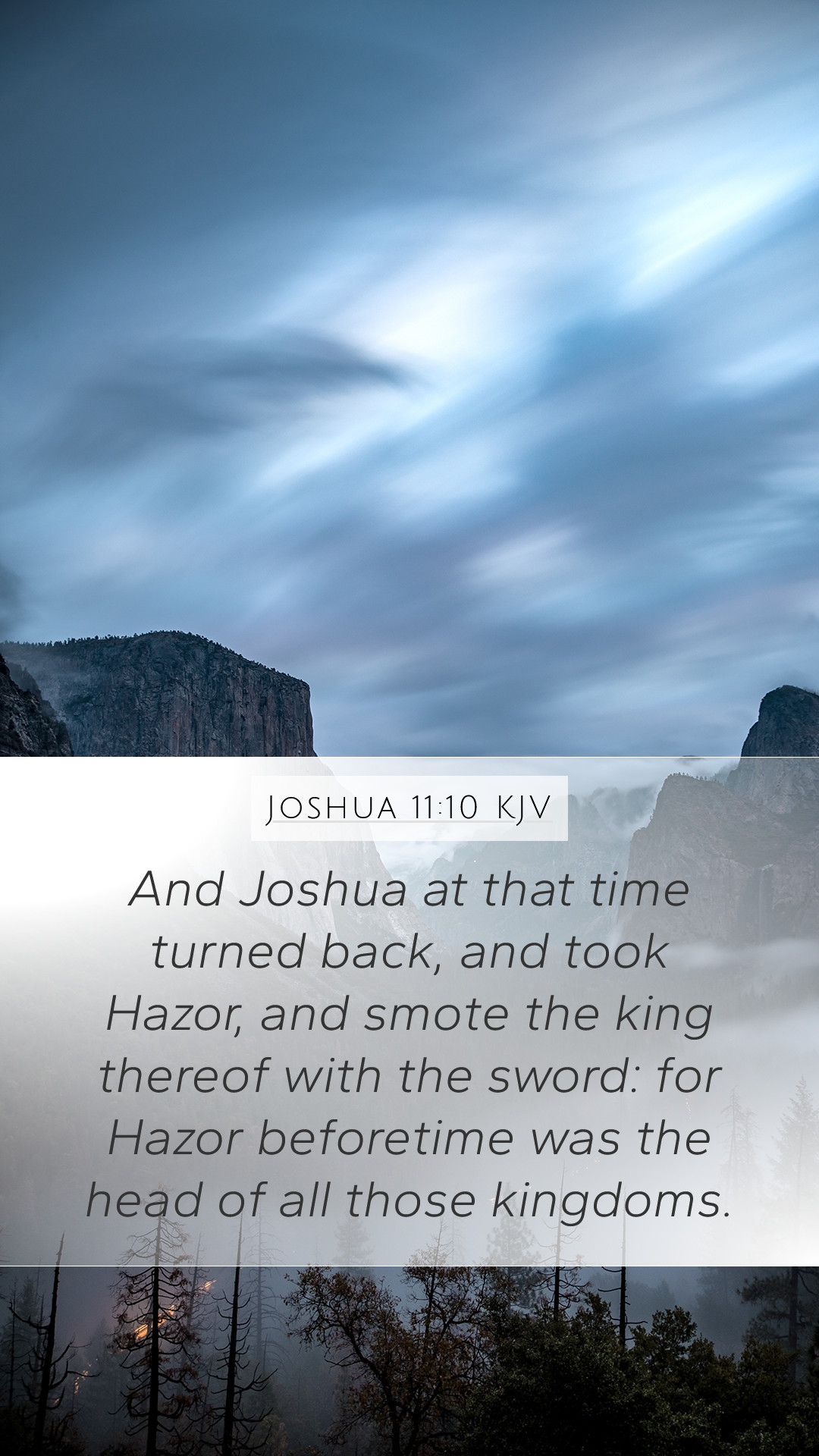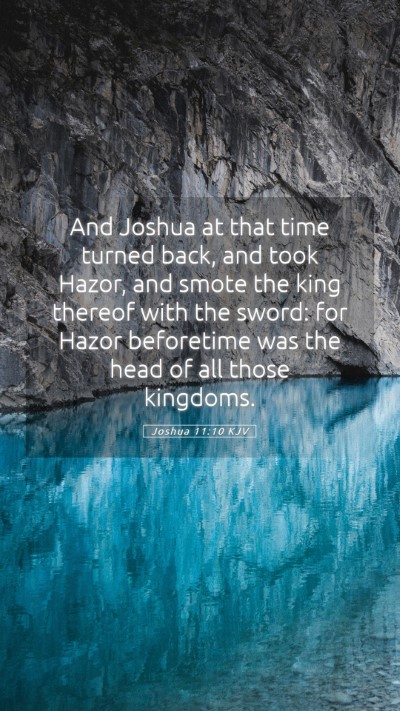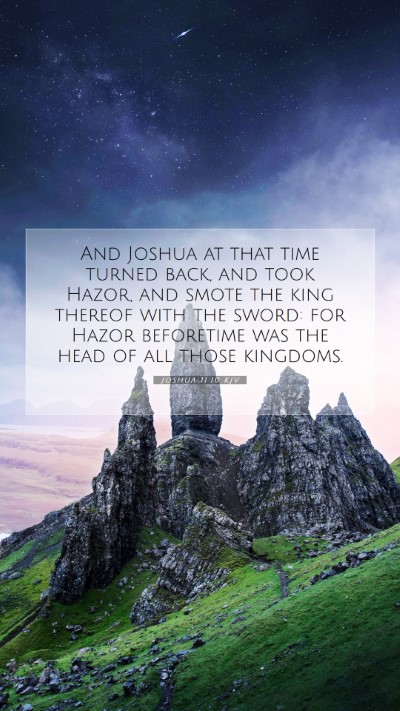Old Testament
Genesis Exodus Leviticus Numbers Deuteronomy Joshua Judges Ruth 1 Samuel 2 Samuel 1 Kings 2 Kings 1 Chronicles 2 Chronicles Ezra Nehemiah Esther Job Psalms Proverbs Ecclesiastes Song of Solomon Isaiah Jeremiah Lamentations Ezekiel Daniel Hosea Joel Amos Obadiah Jonah Micah Nahum Habakkuk Zephaniah Haggai Zechariah MalachiJoshua 11:10 Meaning
What is the meaning of Joshua 11:10?
And Joshua at that time turned back, and took Hazor, and smote the king thereof with the sword: for Hazor beforetime was the head of all those kingdoms.
Joshua 11:10 Bible Verse Meaning
Bible Verse Meaning: Joshua 11:10
Verse: "And Joshua at that time turned back, and took Hazor, and smote the king thereof with the sword: for Hazor beforetime was the head of all those kingdoms." (Joshua 11:10)
Overview of the Verse
This verse describes a significant military victory for Joshua and the Israelites as they continue to conquer the Promised Land. Hazor is highlighted as a central stronghold among the cities in Canaan, symbolizing both a physical and strategic target in their campaign.
Commentary Insights
-
Matthew Henry's Commentary
Matthew Henry notes that this passage illustrates God's promise to Joshua and the Israelites as they receive the land. The act of taking Hazor signifies a decisive defeat of a powerful coalition, emphasizing divine assistance in their endeavors.
He points out the importance of Hazor, previously deemed a significant threat, and how its destruction showcases the collapse of the enemies’ unity against Israel. This victory serves as a lesson in faith and reliance on God in overcoming challenges.
-
Albert Barnes' Notes
Albert Barnes contextualizes Hazor’s prominence as the "head of all those kingdoms” to signify its role as a hub for Canaanite resistance. The taking of Hazor demonstrates Joshua's military strategy and the fulfillment of God's commandments regarding the conquest of Canaan.
Barnes emphasizes that Joshua’s actions symbolize the judgment upon the Canaanite kingdoms, reflecting a broader theme of divine sovereignty and justice.
-
Adam Clarke's Commentary
Adam Clarke focuses on the historical implications, noting that Hazor was previously a significant Canaanite city-state. Clarke elaborates on the strategic geographical positioning of Hazor and its influence over surrounding regions.
He suggests that the overthrow of Hazor serves as a pivotal moment in Joshua’s leadership, marking the beginning of the end for Canaanite dominance in the land.
Theological Implications
The passage reflects themes of divine support and fulfillment of God’s promises throughout the biblical narrative. Hazor represents not only a location of conflict but also a significant point of theological reflection regarding God’s justice and sovereignty.
Cross-References
- Deuteronomy 3:1-3 - The defeat of Og and his kingdom.
- Joshua 10:28 - The conquest of the southern cities.
- Joshua 1:5 - God’s assurance of victory over enemies.
Application in Contemporary Life
Understanding Joshua 11:10 can provide modern readers with insights into overcoming personal struggles and challenges. The story emphasizes reliance on God’s strength and the belief that divine assistance can lead to victory in difficult circumstances.
Conclusion
Joshua 11:10 serves as a powerful reminder of God’s presence in the lives of believers. The lesson from this verse encourages individuals to embrace faith as they confront their battles, drawing parallels between ancient conquests and modern challenges faced.


